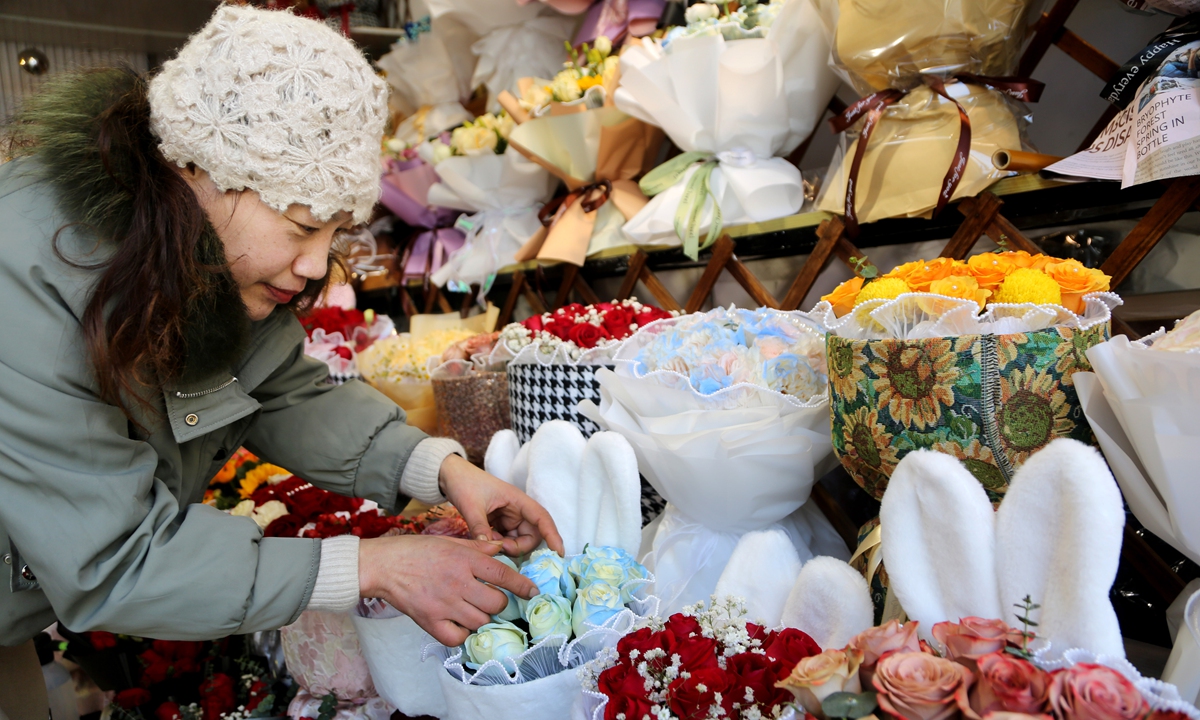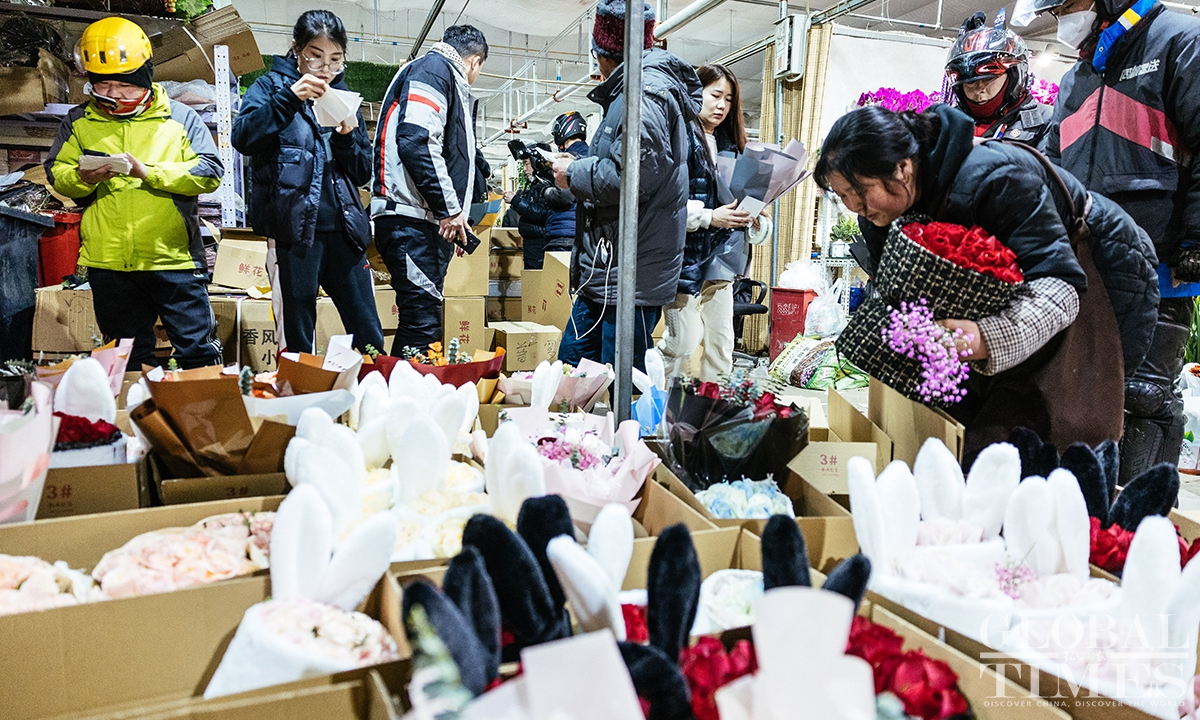
A florist arranges rose bouquets at a flower shop in Lianyungang, East China's Jiangsu Province, on February 13, 2023. Photo: IC
As the first romantic holiday after China optimized its COVID-19 response, the Valentine's Day this year has witnessed a surge in spending on flowers, gifts and catering, evidence that consumption and business activities are recovering faster than expected from the pandemic.
Flowers are the Valentine's Day staple, and both sales and prices are up, the Global Times learned from traders.
A flower wholesaler surnamed Li in Kunming, Southwest China's Yunnan Province, which is a major flower trading and distribution hub in China, said that her recent daily sales of flowers surged to 50,000 compared with 10,000 for normal days.
"Roses are the best seller during the Valentine's Day," Li told the Global Times on Tuesday.
All her flowers are planted locally and delivered to markets across the country. "It is expected that the flower industry will see a great recovery in 2023 as the logistics network has been fully restored," Li said.
The number of flowers delivered by logistics companies under the China Southern Airlines from Kunming to major markets at home and abroad increased more than 43 percent year-on-year, from January 21 to February 13, the airline told the Global Times on Tuesday.
In Shanghai, the prices of flowers began to rise ahead of the Valentine's Day, a local flower store owner surnamed Wang told the Global Times on Tuesday.
"The price of a bouquet of roses has neared 400 yuan ($58.68), it's really crazy," Wang said.
According to a survey by iiMedia Research Institute, more than 80 percent of interviewees intend to give gifts to their loved ones.
Just over 39 percent said they will spend up to 1,000 yuan while another 12.5 percent expect to spend up to 2,000 yuan, according to the survey. As for catering, nearly half of the respondents will eat out on the Valentine's Day.
Others will spend the day at tourist destinations. China's online group-buying giant Meituan said that the number of tourist attractions booked for Valentine's Day on the platform rose 47 percent year-on-year as of the evening of February 12.
Over the past weekend, ticket orders with the keywords "Valentine's Day" and "double ticket" increased by more than 300 percent compared with the same period last year.
"Both the amount of consumption and the categories of consumption on the Valentine's Day this year have increased, especially compared with the past three years during the pandemic," Zhang Yi, CEO of iiMedia Research Institute, told the Global Times on Tuesday.
During the week-long Chinese New Year holidays, sales of China's consumption-related sectors rose 12.2 percent from last year's Spring Festival holidays, data from the State Taxation Administration showed.
The figure saw an average annual growth of 12.4 percent compared with the Spring Festival holidays in 2019, which was in the pre-COVID-19 period, according to the data.
The upward consumption trend mirrors China's economic vitality in 2023, experts said.
Consumption will be the decisive factor affecting China's growth potential this year especially given the low base, Darius Tang, an associate director of corporates at Fitch Bohua, told the Global Times.
"We believe that the expansion of consumption... triggered by the adjustment of pandemic controls is the key variable," Tang said.
Fitch Ratings last week revised its forecast for China's economic growth in 2023 to 5.0 percent, from 4.1 percent previously, and the recovery will be primarily consumption-led, it said.

